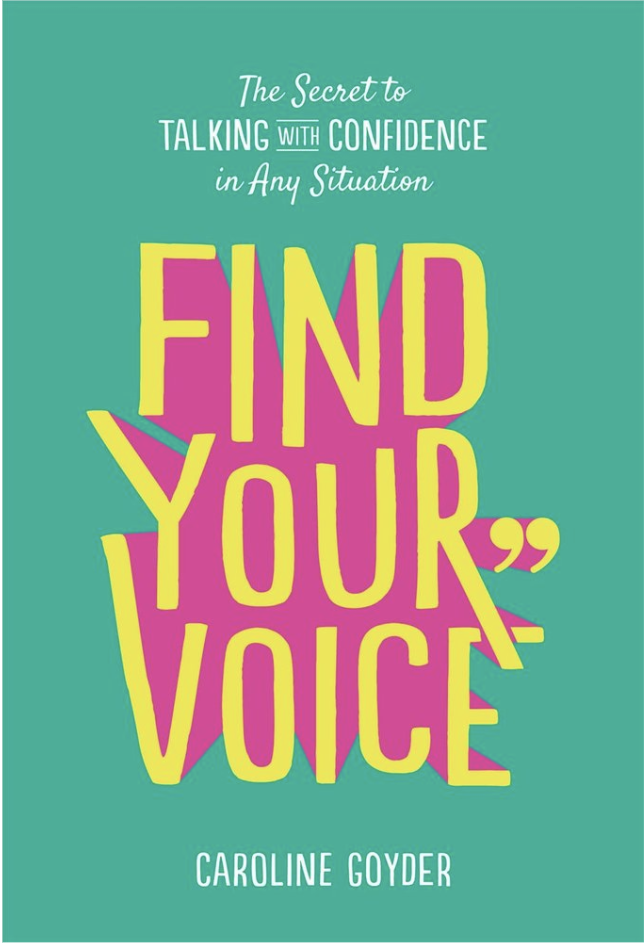March 2020
Caroline Goyder is a leading voice coach and keynote speaker. She has worked at Central School of Speech and Drama as a voice coach since 2001 and has over 15 years’ experience providing voice and gravitas training to people of all ages.

Voice is a teaching super-power. When you have a voice that is strong and expressive, it boosts your confidence and your ability to own the room.
Teaching Drama in South London taught me a lot. Five Year 9 Drama classes on a Wednesday tested that training to its limits. As I got tired I could feel my voice fade and my control wane.
Confidence comes from the Latin word “confidere” – to trust. And trust in yourself is where confidence starts – you see it, hear it, feel it in great teachers. But how can you trust yourself when your words fail you just at the moment you need them most? When your voice is tired so the energy in the room drops. Or when your voice is quiet so you can’t hold the class vocally. Or when your voice is flat tonally and you can’t engage them? How can you trust yourself if you can’t trust your own voice? What would definitely have helped me as that teacher, in the Drama Hut twenty years ago, would have been good daily habits to keep my voice strong and expressive. I went on to train as a voice teacher and twenty years on want to share my secrets to help you – In five minutes a day – to speak with calm and control.
First Thing…Stretch and Yawn
Your voice is exhaled air, and that exhaled air starts in the body. When you stretch you create space for breath and voice you leave the house (or if you have a quiet classroom) a gentle stretch which opens up the body will help your voice. As you stretch yawn too, voiced or silent opens up your voice. And the best way to wake up your expression and energy is to put some music on and sing along – at home, in the car, or even – if it’s viable where you work – in an empty classroom before the hordes arrive. You will find your voice and your energy shift within minutes. You will feel more upbeat and expressive.
Between Classes…Reset
If you’ve had a tough class your voice and your energy may need some TLC. In moments where you have a tiny break between classes it can help to borrow from what psychotherapists are taught to do, move the facial muscles around to release any tension that has crept in. Move the lips and cheeks a little, release the jaw, feel space between the back teeth. Feel space and width in the back of the throat – the feeling of a yawn. Notice how as you release tension from the facial muscles, jaw and throat the voice also relaxes and opens up. If you’re physically tired it can help to think “ears over shoulders”. we can slump when we get tired, and that cuts off the power and tonal variety of the voice. Test the difference, slump and speak, notice the voice lacks energy. Then stand tall, ears over shoulders – your voice will power out with ease, and you will be building the confidence muscle.
Before That Difficult Class…Take Control of Your System
There’s always a class that fills you with a dull sense of dread. But to lead a tricky class, you first have to trust that your nervous system is under control. The rush of fight or flight in the system can bring an edge of defensiveness or aggression into our voices. And no matter how we try to cover it up, it is quickly picked up by classes, even at an unconscious level. The mood becomes edgy, rather than relaxed, simply because of the edge in our voices.
To create a sense of calm and control vocally it helps to understand what fight or flight does to your voice. When we feel a sense of threat our heart rate speeds up, our breathing gets shallower and speech speeds up as the system gears up to meet the threat. As a result. Our voices lose their music, flattening out. And our attention shifts from “friend” cues to “foe” Our systems are focused on threat, so we may miss the positive cues from classes, reacting only to poor behaviour, rather than reinforcing the good. We start to bark rather than to connect.
We all have the capacity to steward our systems back to a feeling of safety so we communicate with calm control. Practise the below sequence everywhere so it’s there when you need it in the blink of an eye.
Caroline Goyder’s new book Find Your Voice: Secrets For Speaking With Confidence In Any Situation (Penguin Random House) 12.99 is Out Now.
© 2022 Voice 21. Voice 21 is a registered charity in England and Wales. Charity number 1152672 | Company no. 08165798